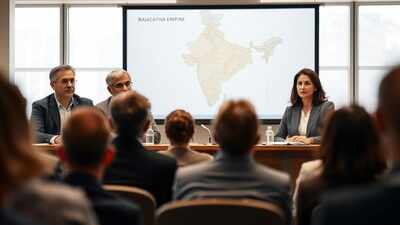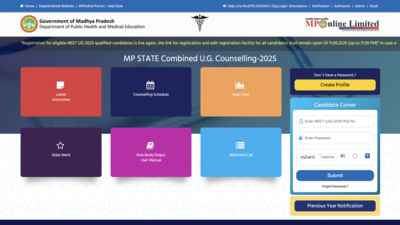In response to recent feedback and concerns raised over textbook content—most notably the depiction of parts of Rajasthan under the Maratha Empire in a Class 8 social science textbook—the National Council of Educational Research and Training (NCERT) has announced the formation of a high-level expert committee. The move, NCERT said in a formal press release, is in line with its well-established practice of undertaking review whenever substantial academic or public input is received.“These curricular resources, including textbooks, receive regular feedback and suggestions from various stakeholders,” the council said, noting that such feedback is essential for improving content quality.The press release emphasised that the committee will consist of domain experts from reputed institutions and relevant NCERT faculty, and will be convened by the Head of the Curriculum Department. The panel is expected to examine the content in question in light of “available evidence” and recommend corrective action at the earliest possible time.
Background: Class 8 map sparks historical dispute
The committee formation comes amid growing debate over a map featured in the new Class 8 social science textbook, which shows parts of western Rajasthan, including Jaisalmer, as being under the Maratha Empire. The most prominent objection came from Chaitanya Raj Singh of Jaisalmer, who argued that “no authentic historical sources” suggest Maratha control over Jaisalmer and called the portrayal “factually baseless and historically misleading.”In an earlier clarification, Michel Danino, Chairperson of NCERT’s curricular group for social science, acknowledged that the map was based on previously published maps in the public domain and developed with expert consultation. He explained that such maps depict not only areas under direct rule, but also those that had tributary or political arrangements with the Marathas, reflecting the complex and fluid nature of historical boundaries.He also conceded that while the Class 7 textbook includes a disclaimer about the approximate nature of historical borders, this caveat was mistakenly omitted from the Class 8 textbook—something he said should have been included to avoid misinterpretation.
NEP-aligned curriculum and open review mechanism
NCERT’s current curriculum overhaul is a part of the implementation of the National Education Policy (NEP) 2020, which led to the development of the National Curriculum Framework for Foundational Stage and the National Curriculum Framework for School Education.Aligned with these frameworks, NCERT has produced new teaching-learning materials, including textbooks. Officials stress that the review process ensures academic integrity and transparency.“Evidence-based decisions are at the core of our process,” the council said, reaffirming its commitment to high-quality, research-driven educational content.NCERT reiterated that the new committee is not limited to a single issue, but is being formed to examine feedback on educational content across a few textbooks. The expert panel will evaluate each case thoroughly and submit a consolidated report for necessary action.TOI Education is on WhatsApp now. Follow us here.






